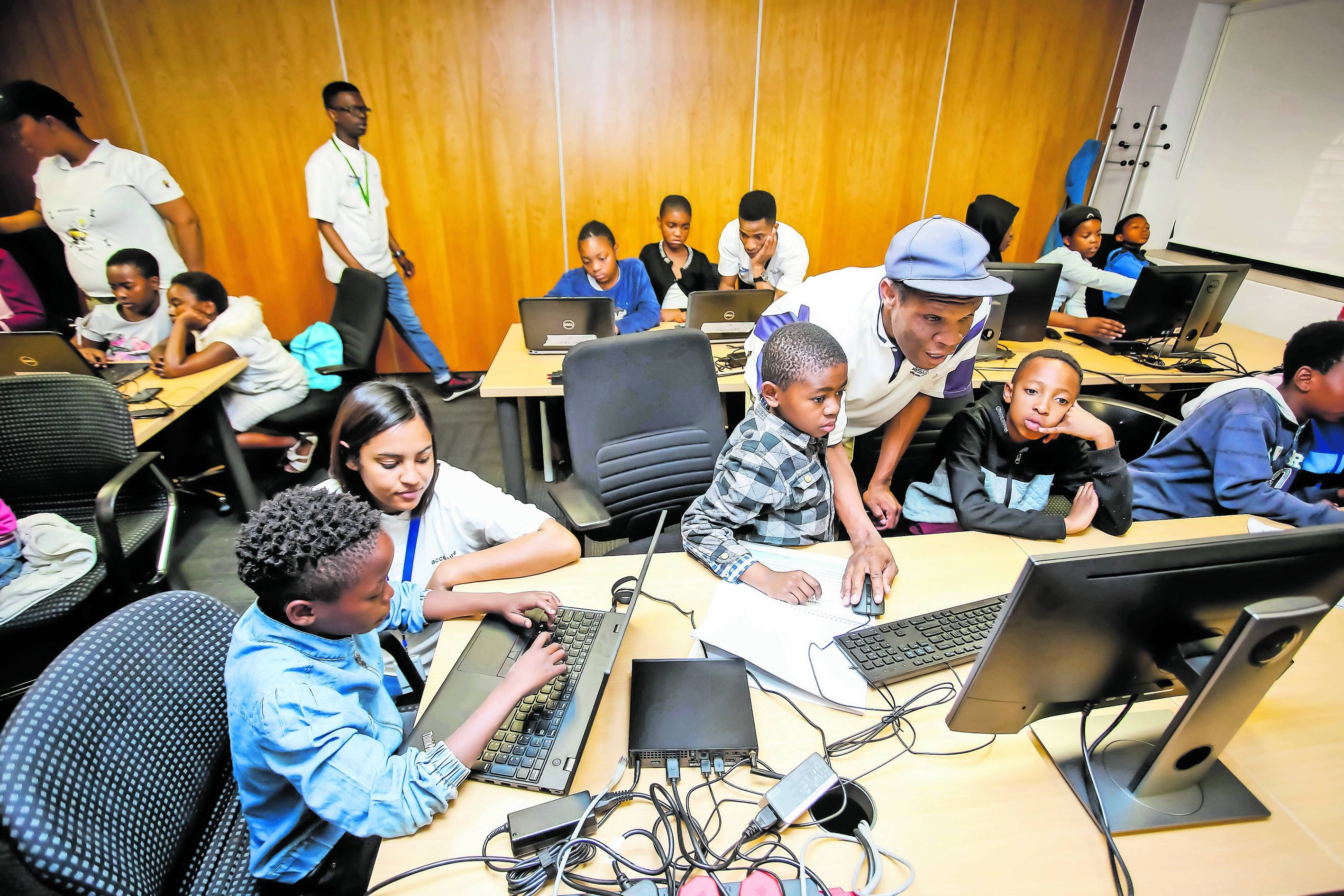South African kids are really struggling with maths, and that's where OLICO steps in to help
The OLICO maths project is committed to making mathematics accessible to children from grades R to matric by giving them the tools and understanding they need to move on to the next phases of their lives.
OLICO provides core foundational skills to children in the younger years and then enhances these as they move through their grades towards their final year of school.
The project receives funding from its long-standing partner Datatec, as well as Hatch, Nedbank Private Wealth, the Oppenheimer Memorial Trust, The Learning Trust, The Sol Plaatjie Education Project, Telesure, LGIT Smart Solutions, the Claude Leon Foundation and the HCI Foundaiton.
“OLICO has been around for 12 years and formed part of academic support programmes throughout that time,” says OLICO maths project director Andrew Barrett. “Over the past six years we have been focused on mathematics as we believe in making maths more accessible. The challenge in South Africa is that our youth are really struggling with maths – many kids aren’t achieving the desired levels and this needs to change.”
OLICO’s maths programme runs maths clubs for pupils in grade R to grade 6 and a blend of tutoring and technology-driven education for grade seven to grade 12. In Gauteng, the main centre is in Diepsloot with other branches in Alexandra, in partnership with the Gauteng department of education. There are also centres in the Western Cape working with the provincial education department.
“The numbers really drive home the situation,” says Barrett. “In Diepsloot, for example, there would be about 2 000 matriculants each year. Out of that number only 27 kids may get more than 50% in their maths. That is a dramatically poor result. Maths is such a gateway subject, opening opportunities for learners, that these results are a barrier to development.”
The project has been a success, with its pupils consistently in the top 20% of matriculants nationally. When the programme started in Diepsloot, the first cohort of pupils had an average of 18% for maths and, when they matriculated in 2016, they were in the top tier of matriculants across the entire country.
“To further facilitate the work we do, we have built an online maths tool that people can access and use for free and we have committed to making as many resources as freely available as possible,” says Barrett. “We want to bridge the gaps in high school maths and to continue growing our network to make real inroads around the country.”
Runner-up: CoderDojo, Accenture

CoderDojo is a global movement of free, community-based programming clubs for young people. Originally established in Ireland, the mission is to equip people between the ages of seven and 17 with digital and coding skills in ways that are creative and fun.
The relaxed learning environments are called Dojos, the coding part is, well, the bit that gives children critical career skills. This year, Accenture partnered with Alexandra Gunners Development, Olieven Development Association and Southern Africa Youth Projects to create CoderDojos in South Africa.
“Initially, the Accenture Global Corporate Citizenship team participated in the programme, which was later introduced to other countries, including South Africa,” explains Khethiwe Nkuna, head of corporate citizenship and inclusion and diversity lead for Accenture in Africa. “In South Africa we host coding lessons twice a month to equip the kids with digital and coding skills in a fun and engaging manner.”
Through the CoderDojo initiative, Accenture aims to motivate young people to pursue careers in science, technology, engineering and maths (STEM), and to help close the skills and employment gaps for vulnerable and marginalised people.
The rapid pace and scale of technological change and the global flows of information, among other forces, are disrupting labour markets and altering the future of work. “These shifts may create economic growth, new jobs and flexible work, but they also lead to the automation of routine, manual roles,” says Nkuna. “Our CoderDojo programme is designed in such a way that participating children are equipped with new skills so they can be ready for this digital economy.”
In a recent study, Accenture found that about 65% of children starting school that year would one day hold jobs that don’t exist yet. Today, about eight in 10 middle-skill jobs in developed countries require basic digital skills and digitally intensive middle-skill jobs are growing two times faster than their analogue counterparts. This makes the successes that the programme has had even more poignant.
“Already, the programme has had success. The young participants are able to code, develop websites, create apps and build online games,” says Nkuna. “This year, we’ll commemorate our year-long programme with a graduation ceremony during the week of ‘Hour of Code’, where participants can showcase the talents they have acquired through CoderDojo. They will also receive a certificate of participation that lists their skills.”